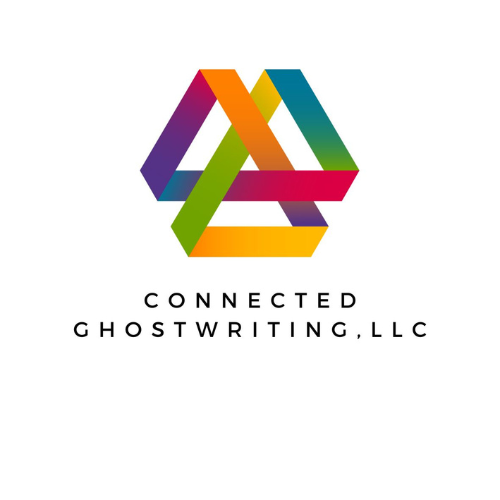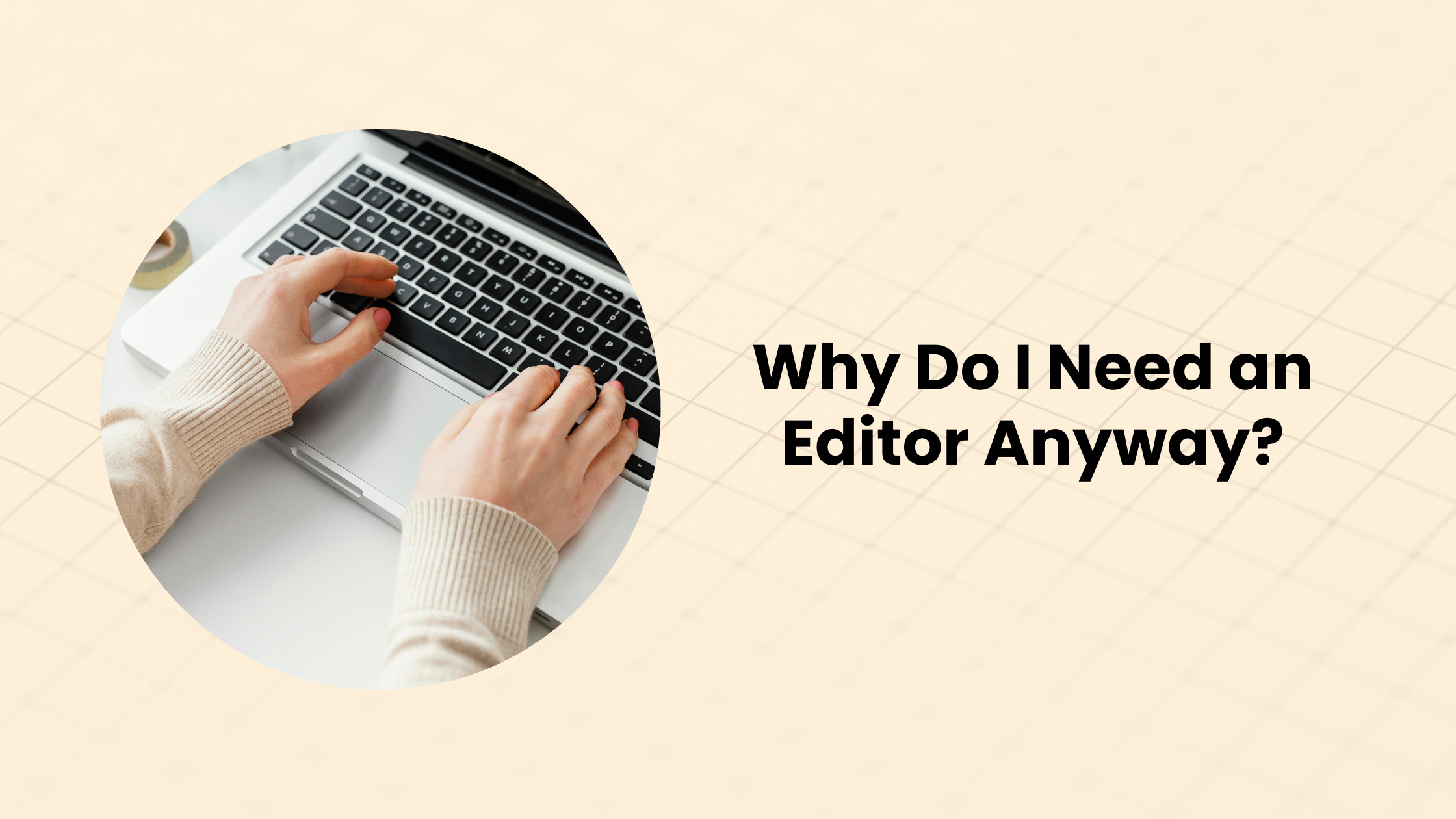You’ve written a great book and you love it! Maybe it has love, action, adventure, or a suspenseful mystery. Maybe it is a non-fiction book that delivers your unique brand message perfectly! You’re sure your audience will love it just as much as you do. It’s ready to go just the way you’ve written it, right?
Not so fast! Before you release any book, an experienced book editor needs to read it more than once. This is true whether you’re self-publishing on Amazon, or using a traditional publisher. But why? I know, you’re probably thinking an editor will just tear your book apart, make all kinds of changes, and it won’t even sound like your book anymore, right? That’s not the way it works, at least not with the right editor.
The right editor will want to help you craft the best book you can.
Why you need a professional book editor
- You should never, under any circumstances, edit your own work. Self-editing will not get your book into submission shape. You’re too close to it. In your head, you know what you meant to say, even if your fingers happened to skip a word while typing. Even when you read it back, that word will be there because in your mind, it’s already there! But when an editor reads it, they won’t know what you were trying to say, and will pick out that typo immediately.
- You need to make sure your story flows. What happens if the action goes from Christmas to summertime, with no mention of where six months went? Or if two characters are suddenly together talking to one another, with no mention made of how they arrived at that place? Or if a character’s eyes were blue in chapter one, but suddenly turned green in chapter four? Flow is important, and you need the help of book editing to be sure it all works.
- On the subject of flow, there might be a bit too much of it sometimes. You may say the same things in several different ways, and you don’t need to say it more than once. An editor can help you prune down unnecessary text.
- When you’re writing, you shouldn’t be thinking about things like there/their/they’re or your/you’re. You should be thinking about the story. An editor will look at all those things when the story is written.
- Publishing Companies will expect your book to be edited. Whatever type of publishing you seek, the publisher will want to know your book goes through professional editing before getting to their desk. Publishers will help with formatting, book cover design, and marketing, but they don’t want an unedited draft.
- Rewriting is easier when you have the advice of an editor. Many writers lament the rewriting process. Some even exclaim, “I can’t stand this book anymore!” before they make it to the final draft. Hiring the best editor for your book will help you avoid this trap!
At the risk of repeating myself, all of these things sound great, but what if the editor just rips your work to shreds? What if they hate it? What if they tell me it will never sell? In a good, productive author/editor relationship, those things shouldn’t happen.
Here’s how an author/editor relationship should look:
- An editor should be well-versed in the genre of your book. You’ll find the process will go more smoothly when the editor has read the genre you write.
- An editor should be critical, but not mean. The point of an editor is not to tell you everything is wonderful. The editor should tell you what needs changing in your book—what needs to be trimmed down, expanded on, changed, rewritten, etc. But—and this is a big but—these comments should be made in a constructive and caring manner. An editor isn’t there to tear you and your book down, but to build them up. Remember, both of you have the same goal—to make your book the best it can be.
- An editor should challenge you. You might not like everything your editor has to say about your manuscript. But all of the comments should challenge you to find ways to make the book better.
- An editor always needs to remember that, in the end, the book belongs to you, so you win. If you are completely against something an editor recommends, you have the absolute right to say no and have your say be final. This is true whether it’s a large change or an errant comma.
Types of book editing services
Now that you know what to look for in the relationship, you’ll need to do some work to find the right editor for you. The first thing you need to decide is what type of editing you’ll need. In the book publishing world, you’ll find developmental editors, copy editors, and proofreaders.
- Developmental editing: This happens when the editor looks at your entire manuscript from start to finish. It takes in things like:
- Structure and style
- Voice
- Characterization
- Setting
- Plot holes
- Phrasing and sentence structure
- Copy editing: This can be described as fine-tuning the text and it is very valuable for non-fiction content as well! It looks at things like:
- Fact-checking
- Inconsistencies
- Glaring typographical errors
- Word choice
- Grammar, punctuation, and spelling
- Proofreading: This is a final check of the manuscript for things like:
- Spelling
- Punctuation
- Grammar
- Anything else that can hamper with the reader’s enjoyment of your story
Wow… quite an exhaustive list of things to look for, isn’t it? Does this magical person who is going to sprinkle fairy dust all over your manuscript exist? And if so, where do you find him or her? There seem to be so many people out there who call themselves editors, but are they right for you and your book?
Finding the right book editing service
- Make sure you understand the editing process and what type of editing you’ll need and be honest with yourself about it. If the editor knows what type of job needs to be done, your chances of getting the right person increase greatly.
- Find an editor in your genre. If you’re writing a mystery, a historical fiction editor might not be your best option. You’ll want someone who knows what your genre is all about.
- Get referrals. Check with your writing groups, critique groups, beta readers, or other authors you know. It’s never a bad idea to find out who someone else has used that they’ve really loved.
- Ask for a sample. A couple of caveats here. Some editors will charge you for a sample, but many will deduct that from the final bill if you choose to work with them. Another issue is that it is hard for an editor to do a developmental edit of a 1000-word sample, which is the general sample that most editors will complete. So temper your expectations accordingly.
- You get what you pay for. Cheapest is not best when it comes to editing. You want someone who is going to give your work the attention it deserves. That being said, though…
- Give newbies a chance. Editors with a lot of experience will generally charge more. Newer editors may not, and that’s not because they’re not good. It just means that they don’t have as many years of experience. So, you might want to consider giving someone who is new to the game a chance. It could end up being the best editing relationship for you!
Let us join your book-writing journey
At Connected Ghostwriting, we offer developmental editing programs and include all three types of editing in all of our book-related services. We even stay with you through the publishing process, connect you with professionals in the publishing industry, and help you conquer the imposter syndrome that stops so many would-be authors in their tracks. To learn more about our programs, please schedule a consultation today.


